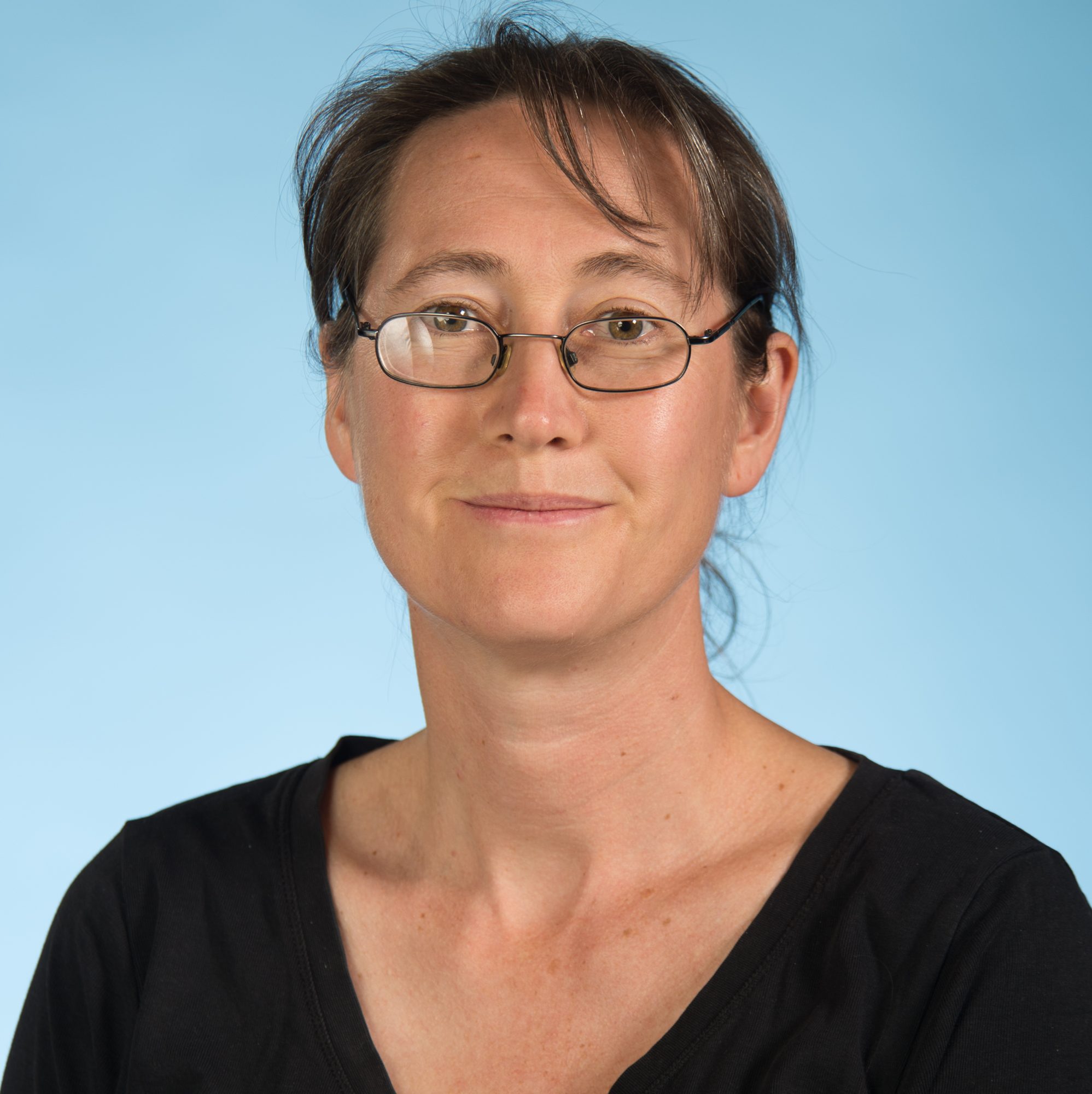Plenary Speakers

Professor Nam-Hwa Kang
Nam-Hwa Kang is a Professor of Physics Education at Korea National University of Education (KNUE), South Korea. Before she joined KNUE in 2012, she was an Associate Professor at Oregon State University and an Assistant Professor at University of Nevada, Las Vegas, United States. She was the Chair of the 2015 revision of the physics national curriculum in South Korea. Nam-Hwa is affiliated with the Korean Physical Society (KPS), the Korean Association for Science Education (KASE), and the National Association for Research in Science Teaching (NARST) – a global organisation for improving science education through research. She was an Executive Chair of the Physics Education Committee of the KPS and a board member of NARST.
Nam-Hwa received her BS and MS degrees from Seoul National University, South Korea, in Physics Education and her Ph.D. degree in Science Education from University of Georgia, United States. Her research centres on bringing science/physics inquiry practices to school classrooms through science/physics teacher education. Her recent publications include, “Emerging online science teaching practices: Insights from high school physics teaching cases in South Korea during COVID-19 pandemic.”
She will discuss the future of science teaching practices and how new and emerging modes of delivery are being adopted.

Dr. Derek Muller
Derek Muller is the creator of Veritasium, a YouTube channel about science that has over 11.5 million subscribers and 1.5 billion views, and a winner of the Streamy award for Science and Education in 2017 and 2021. He has hosted award-winning documentaries: Uranium: Twisting the Dragon’s Tail, Digits, and Vitamania for international broadcast networks (SBS, ABC, PBS, ARTE). He was also a correspondent on Netflix’s Bill Nye Saves the World and a presenter on ABC’s Catalyst.
Derek has appeared live on stage with Neil deGrasse Tyson, Michio Kaku, Space station commander Chris Hadfield, and co-hosted the 2017 March for Science on the Washington Mall. He kickstarted a magnetic molecule making kit called Snatoms, which exceeded its funding goal in the first hour, sold 10,000 units, and is now available globally.
Derek completed a degree in Engineering Physics from Queen’s University, Canada, and a Ph.D. in Physics Education Research at the University of Sydney, Australia. The topic of his thesis was ‘Designing Effective Multimedia for Physics Education’. He will be live-streaming directly from Sydney to talk about the future of engaging and educating a wide and diverse audience.

Professor Chandralekha Singh
Chandralekha Singh is a Distinguished Professor in the Department of Physics and Astronomy and the Founding Director of the Discipline-based Science Education Research Center (dB-SERC) at the University of Pittsburgh, United States. She recently served as the President of the American Association of Physics Teachers. She is a Fellow of the American Physical Society, American Association for the Advancement of Science, and American Association of Physics Teachers.
Chandralekha has been conducting cutting-edge research to improve the learning of physics at all levels. She has pioneered efforts to improve the learning of advanced physics and has conducted seminal research on improving student understanding of quantum mechanics. She has also been a leading researcher focusing on research on assessment of learning in the context of physics and on improving student learning in physics courses at all levels. Chandralekha has played a key role in research on the role of intuition and expertise in physics problem solving, which can be translated to improving students’ problem solving, reasoning, and meta-cognitive skills.
Her talk will focus on ways to improve the understanding of quantum mechanics for higher level tertiary students and physicists of the future.
Keynote Speakers

A. Prof Estelle Blanquet
Estelle Blanquet is a Associate Professor in Science Education at the University of Bordeaux and chair of the teaching commission of the French Physical Society. She trains primary and secondary school teachers to teach physics at the Bordeaux Teacher Training Institute. Her main areas of research are the appropriation of the scientific approach by Kindergarten and primary school pupils and their teachers (NoS) and the understanding of the relativity of movement under strong paradigmatic pressure.

Professor Dietmar Höttecke
Dietmar Höttecke is a Professor of Physics Education at the Department of Education at Hamburg University, Germany, and Head of the Working Group of Physics Education. He studied physics and German language and literature before he earned his Ph.D. at the University of Oldenburg, Germany. He has also worked as a secondary school physics teacher. His main research interests are teaching and learning about “Nature of Science”, education for sustainable development, climate change education, science media literacy, judgment and decision-making in science education, and the role of language for learning and understanding.

Dr. Z. Yasemin Kalender
Z. Yasemin Kalender is an Assistant Professor at the Physics and Astronomy Department at the Rochester Institute of Technology conducting physics education research. Her current research interests are student motivation, equity and diversity in physics at all levels, group work in lectures and lab courses, sense of agency in hands on learning spaces, and graduate teaching assistants’ views and teacher identities.

Dr. Wittaya Kanchanapusakit
Wittaya Kanchanapusakit is a Lecturer at the Department of Physics, King Mongkut’s University of Technology Thonburi, Bangkok, Thailand. They have research interests in theoretical physics and physics education. Since 2016, Wittaya has been working with gifted students as an active leader and coach for the International Young Physicists’ Tournament (IYPT) and International Physics Olympiad (IPhO) for team Thailand.

Dr. Antti Lehtinen
Antti Lehtinen is a Senior Lecturer of Physics Education at a shared position between the Department of Physics and Department of Teacher Education at the University of Jyväskylä, Finland. His has done research on science teacher education, inquiry-based science learning and teaching and the use of simulations in science teaching. His current main research interest is the development of physics instructional labs at the university level concentrating on e.g. the use of smart phones, the role and training of the teaching assistants and assessment and feedback of instructional labs. He is coordinating the European Union -funded project “DigiPhysLab” which concentrates on developing physics lab tasks suitable for distance learning.

Dr. Pongskorn Saipetch
Pongskorn Saipetch is a science educator. After earning a Ph.D. in biomedical physics from UCLA in 1995, he was involved in numerous software development projects and startup companies for the next two decades. For over 15 years, he has been a lecturer in Scientific Research and Presentations at Mahidol University International College. He has been leading regular science activities for children 6-15 years old since 2010 and collects them at https://witpoko.com

Dr. Sebastian Staacks
Sebastian Staacks is a Scientific Assistant at the RWTH Aachen University, Germany, where he also received his Ph.D. in solid state physics. He subsequently developed the physics education app “phyphox” and focused on developing digital tools to enhance physics education for all students as its lead developer. The open source app phyphox has achieved more than 3 million installs worldwide and has inspired volunteers to translate it into 17 languages or to act as ambassador in more than 40 countries.

Professor I Wayan Suastra
I Wayan Suastra is a Professor of Science Education at the Ganesha University of Education. He is the alumnus of the Indonesian University of Education. His education and research is focused on physics, ranging from guided inquiry learning and problem-based learning, to using technology and authentic assessment. His particular speciality is on situating local wisdom of Bali into physics education and their implications. He is also involved in investigating and implementing science programs in junior school on developing critical thinking about local cultural concerns.

Professor Agus Suyatna
Agus Suyatna is a Professor of Science Education at the University of Lampung, specialising in physics education. While his research in physics education is multifaceted, he has capitalised on his expertise in technology in physics education to optimize for online and remote teaching and learning during COVID-19. He has published on the specific topics of growing students science process skills, STEM-based physics multimedia and STEM-integrated flipped classrooms. He has also researched physics teachers perceptions and use of STEM approaches.

Dr. Margaret Wegener
Margaret Wegener is a Teaching-Focused Senior Lecturer in Physics at The University of Queensland, Australia. She is involved in physics education via teaching, professional service, and research. Her research in Physics Education aims to make physics accessible and meaningful to students. Major themes of her work are contextualisation of physics and the development of technology-enhanced and inquiry-based learning activities. Margaret is deeply interested in the interrelationships between science and art.

A. Prof. Kate Wilson
Kate Wilson is an Education Focused academic and a member of the University of New South Wales Scientia Education Academy, Australia. She has a Ph.D. in Physics from Monash University, Australia, and has done research in computational physics and condensed matter physics, but most of her research has been on student learning and experience. Her current research interests include student learning, pedagogy, and curriculum development. Kate is co-author of an undergraduate physics textbook and four high school physics textbooks, and has also contributed to texts on chemistry and biology.
The proud partners of the 2022 ICPE Online Conference
CO-HOSTS

SPONSORS

